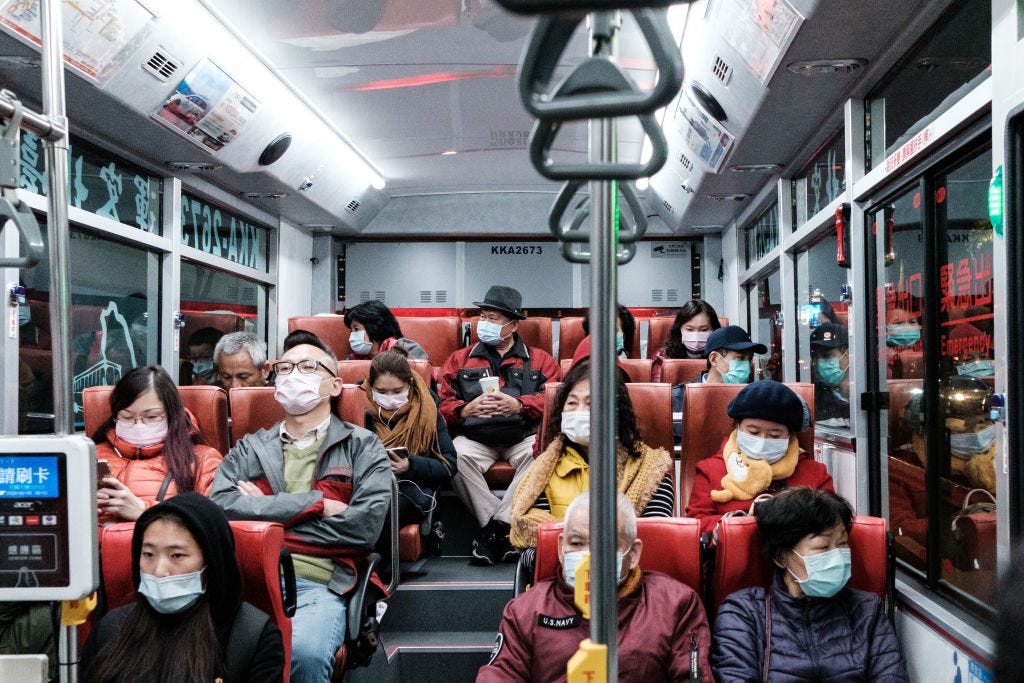
The COVID-19 pandemic boosted the digital world as people tried to solve diverse problems efficiently. The digital world is based on open data — information that can be used and distributed by anyone without restrictions.
The world is beginning to process and inform open data, because the more data there are, the easier it is to recognize patterns and predict outcomes. Those predictions help prevent potential problems, so it is important to utilize them to improve quality of life.
For example, Taiwan created an app that used open data to track the inventory of masks in stores during the pandemic. The app brought convenience to vast numbers of people, even outside of Taiwan.
I am a junior at the American School in Taichung, and part of the school’s Red Cross Association (RCA). Participating in the association, I came to understand more about open data. RCA activities such as blood and food donations use raw data. The organizations that receive the donations need that data to keep records on how they are doing.
If an organization makes the data open to the public, I could track trends in donations over time, making it possible to draw graphs and interpret the data in the real world.
More open data are being generated and used in Taiwan. They significantly benefit the country and Taiwanese. They can quickly provide information to people, enhance the economy and find diverse solutions to a problem.
From my experience collecting data, Taiwan does not prepare user-friendly open data as well as other countries.
For example, it is worth comparing South Korea with Taiwan. While collecting data to make a graph, I saw that South Korea’s blood donations were decreasing after the worst of the COVID-19 pandemic, but Taiwan’s blood donations remained steady.
Before that, when I accessed South Korea’s blood donation data from its official government Web site, it was easy to find the trend over the years because the open data were well-organized in a spreadsheet. It was possible to download PDF and Excel files, which help people create graphs more efficiently.
However, Taiwanese blood donation data were not provided in a spreadsheet format, but in tables embedded in PDF files.
I had to download every file to access the data, as they were separated individually by year. After downloading them, I had to key in the data into my own Excel file, which took a significant amount of time.
With the South Korean data, the downloading process was simple.
The Taiwan blood donation data were not the only inconvenience. As the school’s RCA was having a food drive, I looked into food donation data in South Korea and Taiwan.
South Korea’s food donation data, just like the blood donation data, was embedded in spreadsheets. There were filters so that users could choose which kind of data they wanted to obtain, including data about the number of food donations by year, the number of food donations by region and more. Taiwan did not provide any open data due to donor privacy concerns.
I have asked three food banks in Taiwan for food donation data over the years, but I received no response. I do not see the need for confidentiality of the donors when the data I am looking for regards the aggregate food donation, not the individual donation quantity. Open data could improve transparency in some cases.
Using more open data would bring lots of advantages to the country, but the data provided by several Taiwanese public sector groups are not user-friendly compared with the government’s data.
By collecting open data, students can learn how to handle information, and make graphs or pivot tables using Excel or Google Sheets. They can practice interpreting the data and use those data to promote a certain event, such as a food drive.
Students in Singapore already enjoy these advantages because the country does a great job of arranging its open data. They are trying to solve many problems by creating a trusted data-sharing framework.
Indonesia is also communicating with citizens through open data, and has started the “One Data Initiative.”
In the UK, Transport for London was also able to save money due to widely shared and abundant data.
Students and societies can benefit from reducing data loss, making intuitive information available and having better efficiency through the application of open data.
Taiwan can improve data access and make it more efficient, as it is already one of the most advanced countries in the information and technology industry. Once a user-friendly data environment is created, the outcome would be highly valued.
– SeongJun Choi is a South Korean student at the American School in Taichung. Taipei Times.


